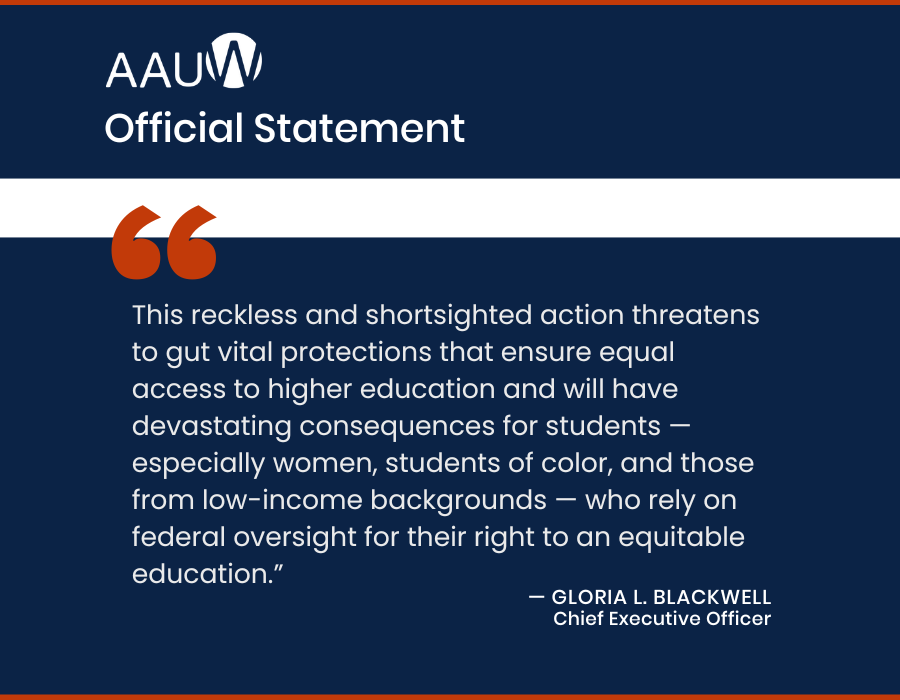AAUW : Empowering Women Since 1881
Advancing gender equity through
education and advocacy.

AAUW’s Annual Report: A Year of Impact
Discover how AAUW is advancing equity for women and girls nationwide. Our latest Annual Report highlights key achievements, financials, and the impact of our programs over Fiscal Year 2024. Be sure to check out AAUW’s stories of impact.

AAUW Condemns Executive Order Threatening U.S. Department of Education
AAUW strongly opposes the recent executive order calling for the dismantling of the U.S. Department of Education. Undermining this essential agency jeopardizes students’ civil rights, educational equity, and access to quality public education.
AAUW NGOCSW Parallel Event - Innovation & Advancement: The Power of Women in STEM
AAUW’s virtual parallel event moderated by Gloria L. Blackwell, featured a panel of four outstanding AAUW fellowships & grants alumnae — Catherine Adelman, Dr. Christine Marizzi, Dr. Rachel Marra, and Yamilée Toussaint. Panelists discussed the critical need for strategies that inspire and educate girls to choose STEM careers and how to remove barriers to increase the participation and empowerment of women across these underrepresented fields.
Take Action
Members of AAUW’s Action Network receive urgent email notices and text messages when their advocacy is needed most. With our online Two-Minute Activist tool, it takes just minutes and an internet connection to make your voice heard on issues impacting women and girls!



